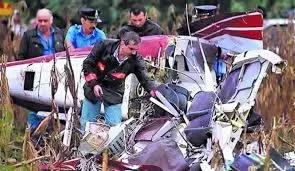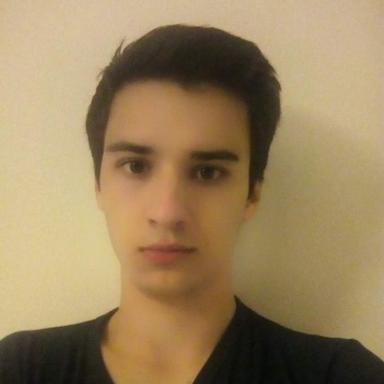After so many judicial ups and downs, Amazon Prime finally premiered “Síganme,” the eagerly awaited biopic inspired by the first presidency of Carlos Saúl Menem. Its first (and so far only) season explores the eccentricity that marked his personal life, the audacity of his governing style, and the deep impact he had on Argentina in the nineties, which changed the country forever. From his rise to power with a populist and charismatic aesthetic to his establishment as a symbol of a decade of reforms, privatizations, scandals, and “pizza with champagne,” the series reconstructs the golden and dark days of one of the most complex figures in national politics. Who was Carlos Saúl Menem?
Like his story, the series was not without controversy: neoliberalism, the pardon of military officials, VIP parties at the Quinta de Olivos, the red Ferrari, his promise of austerity, “el salariazo,” and trips to the stratosphere, the “carnal relations” with the US, arms trafficking, among others. Among the many controversies it revives for those who lived through the tumultuous nineties and for those who did not, Síganme brings back into discussion the tragic death of Carlos Facundo Menem Yoma. Was it an accident or an attack? Who supports both theories? Will the truth ever come to light?
The Official Version
Like his father, Carlos Facundo Menem lived life without brakes. He started his career as a rally driver in 1987, behind the wheel of a Peugeot 504, which he had already used in previous competitions. Over time, he changed vehicles: he moved to a Renault 18, and by the early nineties, as the President's son, he made the leap to the international stage. He seemed to have no ceiling until everything changed on March 15, 1995.
That afternoon, he was piloting a helicopter with TC pilot Silvio Oltra. The intention was to go from San Nicolás to the Rosario racetrack. According to some versions, they were going to participate in or attend a motorsport event or perform a demonstration. The security detail followed the vehicle from the road until it had to stop to “change a tire,” and from there, everything turned into a disaster. Witnesses recount that Carlitos Jr. was flying at a low altitude, and visibility was obscured by fog until he got tangled with some high-tension wires, causing him to lose control and crash in a field near Ramallo. Silvio Oltra was killed instantly, and Menem died in a hospital a couple of hours later. There were no signs of previous mechanical failures or signs of sabotage, and the case was closed as an accident caused by pilot error. The board officially dismissed any external intervention or criminal cause.
However, this official version was quickly countered by the majority of public opinion. From day one, Zulema Yoma, Carlitos' mother and ex-wife of Carlos Menem, refused to accept that explanation. She claimed that the scene of the incident was altered to hide the fact that her son had been murdered and that the body had bullet wounds. The state rallied around the technical account. However, the years did not quell the doubts. Was it really an aviation accident, or the concealed murder of someone who knew too much? The questions remain open. And in that unresolved wound lies one of the most uncomfortable silences in Argentine political history.
Why is it believed that it was an attack?
In 1989, Menem had received financing from Syria, Iran, and Libya. In exchange, the riojano was supposed to deliver a missile, a nuclear reactor, and uranium to each of the countries, respectively. However, a couple of years after taking office, Menem distanced himself from these countries to get even closer to the US, as the latter had reported multiple cases of corruption. Unfulfilled promises seem to have paid off with the attack on the Israeli Embassy and two years later, AMIA. Others argue that there was a third attack: the attack on his own son was a settling of scores, where different officials point to Syria as the main accused.
In addition to these possible unfulfilled mafioso political agreements, Zulema continues to insist that her son had direct knowledge of the movements that the National Government was making to secretly sell weapons to Croatia and Ecuador, two countries that, at that time, were prohibited from receiving arms due to being involved in armed conflicts or due to international commitments. Carlitos allegedly expressed his intention to “make them public” because he was anxious in the days leading up to his death and felt threatened. While there is no conclusive evidence that the President's son was actually investigating or participating in the denunciation of these events, the timing and proximity to the key protagonists of the scandal reinforce the suspicion of a possible intention to “erase him from the map.”
The investigation was suspiciously brief and efficient, accepted without question by the authorities, and the judicial file was closed in record time. In the archival photographs, there are some details that could be perceived as bullet impacts, but the helicopter was quickly handed over to the insurance company, and a part even disappeared, preventing a complete inspection of the aircraft. As for the autopsy, it was also dubious, and even Zulema Yoma doubted that the body that underwent examination was indeed her son, but three judges determined that it was Carlos Menem Jr.
Despite everything, were there no witnesses or experts who were at the scene immediately? Yes, but several of them could not recount their entire story to the police (some not even part of it), a version that could favor the attack theory. It is estimated that between eleven and fourteen witnesses died under strange circumstances in less than two years. Among them was the caretaker of the field where the accident occurred, who claimed to have seen “suitcases, envelopes, and loose money” after the crash. Shortly thereafter, he was killed in a hit-and-run accident. His testimony was never further elaborated. Other notable deaths during this period involved persons indirectly related to the case: an assistant to the expert, the head of the Helicopter Division, a doctor who allegedly attended to Carlitos, and some witnesses and family members. None of these deaths were thoroughly investigated.
The theory was reinforced when Carlos Saúl Menem himself stated in 2014 that his son was a victim of an attack carried out by Hezbollah, a terrorist organization of Lebanese origin. He claimed to have known the authors of the attack during the nineties, but never revealed them as it was a state secret. He never mentioned names, and the former President died on February 14, 2021.
What remains for the rest?
In thirty years, neither justice nor the state has managed (or wanted) to clearly respond to what really happened that day. Was it an accident? An attack? A crime silenced for political convenience?
This raises an uncomfortable question: if the truth about the death of the son of a sitting President with significant political power was never revealed, what can any citizen expect without a surname, without security escorts, without a press outlet, and without a contact at the Casa Rosada? The death of Carlitos Menem Jr. is more than a family tragedy: it is a brutal display of the fragility of our country's justice system, its selectivity, and its lack of resources.
The case never fully closed because the state never fully opened it. There was no political will, no institutional pressure, no transparency. And in that void remained the pain, the suspicion, and a democracy incapable of offering minimal certainties. In a country where the son of a president dies and no one is held accountable, the message is clear: if the power does not protect even its own, who can truly feel protected?


Comments